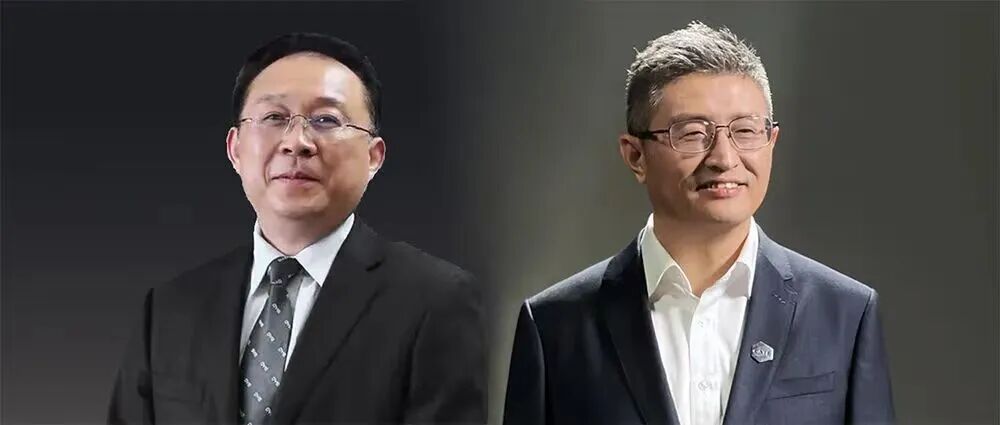Automotive Industry Welcomes Two New Academicians!
![]() 11/24 2025
11/24 2025
![]() 654
654

On November 21, the Chinese Academy of Engineering officially unveiled the results of its 2025 academician election. Lian Yubo, Chief Scientist and Chief Engineer at BYD, and Wu Kai, Chief Scientist at CATL, were both elected. As prominent figures in vehicle R&D and power battery technology within the new energy vehicle industry chain, their concurrent selection not only fills gaps in academician positions within relevant technical fields but also marks a significant milestone, signaling the national academician election process's growing emphasis on private technology enterprises.
The election of these two scientists is a testament to their groundbreaking contributions in engineering technology and remarkable industrialization achievements, perfectly aligning with the Chinese Academy of Engineering's core selection criteria, which emphasize "major inventions and creations + significant application effectiveness." Lian Yubo's career has traversed the entire transformation journey of China's automotive industry, shifting from traditional fuel vehicles to new energy vehicles. After graduating from Nanjing University of Aeronautics and Astronautics in the 1980s, he was involved in pivotal projects such as the joint design at the Tianjin Automotive Technical Center and the model development at SAIC Yizheng. Upon joining BYD in 2003, he established from scratch a vehicle technology platform system encompassing multiple generations of models. His platform-based development model reduced BYD's vehicle R&D cycle by 40%, directly facilitating the company's transition from a battery manufacturer to a global leader in new energy vehicles. Innovations like the Blade Battery and CTB technology originated from this technology system.
In the realm of power batteries, Wu Kai led his team to achieve technological advancements that surpassed international giants. He introduced the concept of "ubiquitous safety," utilizing submicron metal composite polymer current collector technology to fundamentally address the industry-wide challenge of internal short circuits and fires in lithium batteries. His development of single-crystal nickel-cobalt-manganese ternary materials enabled cell-specific energy to exceed 300Wh/kg, breaking the technological monopoly held by Japanese and Korean firms. More significantly, he established the PPB (parts per billion) level manufacturing process, resulting in one of the world's only three "lighthouse factories" for lithium batteries, with a single-line efficiency exceeding 10GWh/year, far surpassing international benchmarks and providing core support for CATL's 37% global market share. After stepping down as the company's Deputy General Manager in 2024, Wu Kai has dedicated himself to research at the National Engineering Research Center for Electrochemical Energy Storage Technologies, continuing to explore cutting-edge areas such as battery recycling and green zero-carbon technologies.
The election of these two scientists from private enterprises coincides with a policy window period where the academician system is increasingly focusing on the frontlines of industry. This election by the Chinese Academy of Engineering specifically reserved eight special slots to support candidates from leading private technology enterprises, breaking away from the traditional pattern where academicians were predominantly sourced from research institutes and universities. Based on their resumes, both Lian Yubo and Wu Kai relinquished their executive positions in enterprises between 2023 and 2024 to concentrate solely on technology R&D. This decision to "step down from management to engage in research" not only underscores the enterprises' emphasis on core technologies but also paves the way for them to delve deeper into scientific research and strive for top honors. Their successful elections, along with those of private enterprise academicians like Wang Jian from Alibaba Cloud and Wu Hanming from SMIC, signify a continuation where the innovative value of private enterprises has been fully integrated into the nation's highest science and technology evaluation system.
Currently, China's new energy vehicles command over a 60% global market share. However, challenges persist in areas such as solid-state batteries and high-computing-power chips. The vehicle architecture technology led by Lian Yubo and the power battery innovations by Wu Kai can foster deep synergies. For instance, integrating the "ubiquitous safety" technology into the vehicle's CTB architecture design could potentially eliminate range anxiety and safety concerns once and for all. Wu Kai has explicitly stated that in the future, he will drive the upgrading of battery manufacturing towards reconfigurability, intelligence, and zero carbonization, and will lead efforts in formulating international standards to vie for global industry discourse power.
From a broader and more far-reaching perspective, the election of these two scientists conveys a clear direction: under the demand for developing new quality productive forces, practical talents who "write their papers on the ground" are receiving unprecedented attention. Lian Yubo's platform-based technology has fundamentally reorganized the logic of automobile manufacturing, while Wu Kai's process innovations have significantly transformed the industrial landscape of power batteries. Their research achievements have directly translated into corporate competitiveness and national industrial advantages. With these leaders establishing cross-disciplinary collaboration platforms in their capacities as academicians, they will further drive technological breakthroughs and innovative collaboration in the new energy vehicle sector, opening up more possibilities for the R&D and application of related technologies.
Attachments:










